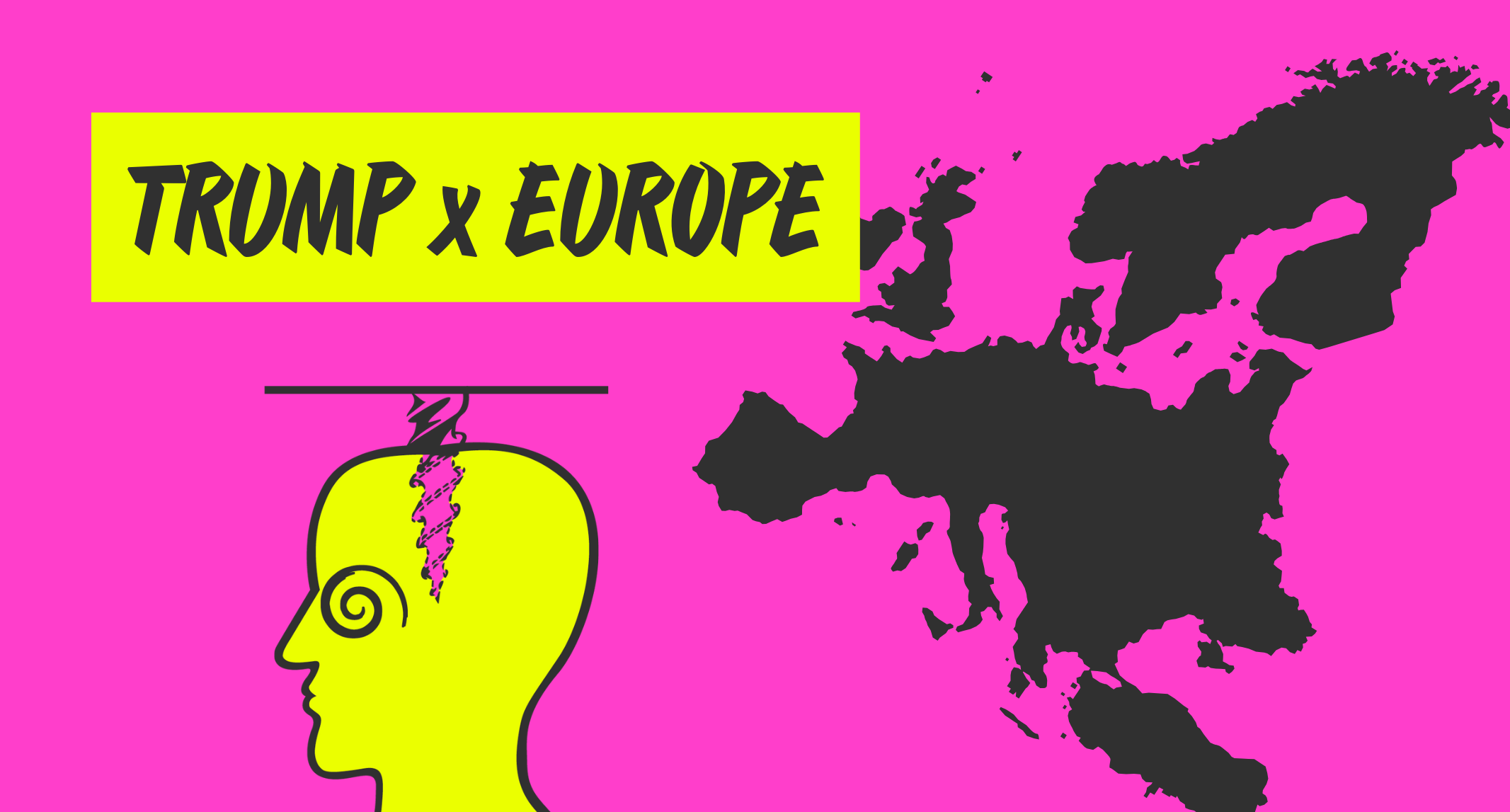Trump x Europe
Will the EU befriend Trump or fight Big Tech? 🤔🇪🇺

Still trying to make sense of what the next four years means for our digital world? Me too.
As Donald Trump prepares for his inauguration – one mind-blowing appointment at a time – I’ve been chatting to People vs Big Tech’s members across Europe to get their expert takes.
Trump has vowed to crackdown on initiatives focused on tackling disinformation – what he calls the “toxic censorship industry” – and to repeal important AI regulation. This is scary not only for the US, but for politics and societies around the world.
In Europe specifically, there are concerns about what the Trump victory means for the future of the Digital Services Act (DSA) – the landmark EU law which attempts to build a better, safer internet. Experts I spoke to are worried that, driven by fears of the economic ramifications, the EU will back down on its plans to fine Apple and X.
But believe it or not, it’s not necessarily all bad news.
Trump has been critical of Big Tech’s power. While this may not be for the same reasons as you or I, it could make for some interesting developments: for example, he’s vowed to tackle the revolving door between government intelligence (and even border!) agencies, and companies which hold vast amounts of US user data. Not to mention the fact that there are already reports that it’s not all sunshine and rainbows in the Trump Musk household 💔
Now, over to the pros. Quotes have been edited for length and clarity.
Rafal Pankowski, co-founder of Poland’s leading anti-racist group NEVER AGAIN Association:
“Our monitoring and reporting shows the massive scale of rampant hate speech and incitement to violence against minorities on social media platforms. Trump and Musk's amplification of hateful narratives is likely to result in an increasingly toxic climate. The EU must not give in to blackmail and implement the DSA [Digital Services Act] and other provisions against hate speech and incitement. It is long overdue."
Cori Crider, lawyer and senior fellow at Open Markets and FutureTech:
“The unholy fusion of authoritarian state power and Big Tech power at the head of the US is dangerous. But it also presents opportunities. Republicans have long seen Google’s search monopoly as a corporate wing of the Democratic Party, for example, so there's a real prospect *some* antitrust action [laws limiting market dominance of a company] against them surviving. We should be calling for the same result in Europe too.
Europeans and Brits need to take a long, hard look at their dependency on Big Tech – not just for search and socials, but for critical infrastructure like the data centres wasting energy and fuelling Big Tech's AI. We need to shout to European leaders from the rooftops: it is time to stand on our own two feet.”
Chris Kremidas-Courtney, Senior Advisor at Defend Democracy:
“Trump’s victory in alliance with Silicon Valley moguls like Elon Musk means that we’re entering an era where Big Tech will not only be unleashed, but they’ll also be able to use their influence in the White House to bully the EU into not enforcing the laws and regulations meant to protect our citizens and democracy. We must stand strong and united amid these attempts to coerce us into abandoning our values and sovereignty.”
Rasha Abdul-Rahim, Interim Executive Director, People vs Big Tech:
“The EU has sought to take a tough approach with Big Tech companies, including the Commission’s finding that Elon Musk’s X has breached the DSA [Digital Services Act]. It must continue this important work despite pressure from Trump and his “America First” agenda, in this case driven by the belief that the EU discriminates against US companies. The Commission must hold the line or risk being bullied into submission. Not only is its authority at stake, but also crucial and hard-won rules that seek to curb the oversized power of Big Tech, ensure respect for fundamental rights and allow European competition and digital sovereignty to thrive”.
Cade Diehm, founder of critical tech research group New Design Congress:
“The European Union dreams of a highly digitised future: voting, banking, identity, communication, education, work and governance, all conducted in digital systems governed by European democratic values. But the digital European society is wholly dependent on operating systems developed by US companies running on hardware manufactured through US-led partnerships.
This election lays bare a rarely acknowledged truth: in failing to invest in a digital society, the EU risks ceding its sovereignty to a belligerent power that has overtly promised to leverage any means at its disposal to accumulate power. The absolute priority of the EU must be to fund open source infrastructure, fast-track investment in high tech design and manufacturing, and develop methods of resilient digitisation.”

